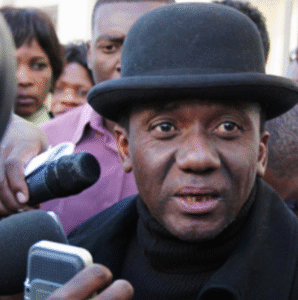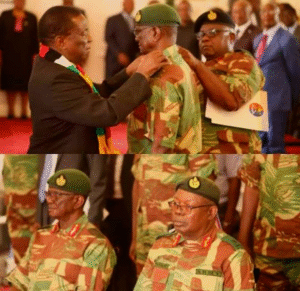ZIMBABWE CRACKS DOWN ON DISSENT AHEAD OF SADC SUMMIT

The Zimbabwean government is taking tough measures to stop any meetings and dissent before the Southern African Development Community (SADC) summit in Harare next month. They fear protests in front of regional leaders.
President Emmerson Mnangagwa’s government is working hard on the SADC summit. This is very important for political support because the SADC election observer mission rejected last year’s general elections as flawed.
The government is spending a lot of money on building roads, villas, fixing hotels, and buying buses for the summit.
Today, the police violently stopped a Zimbabwe National Students Union General Council meeting at 10am at Zesa National Training Centre in Harare. Most of the 60 students at the meeting were brutally beaten, and some were arrested and taken to Harare Central Police Station. This was a clear violation of the students’ constitutional rights to freedom of assembly, association, and expression.
Lately, there have been many arbitrary arrests, detentions, and harassment by the police as they crack down on dissent. Former minister and MP Jameson Timba and the Avondale 78 were arrested on 16 June for simply gathering for a braai in Avondale, Harare, to commemorate South Africa’s Soweto Uprising (Youth Day).
Opposition leader Job Sikhala was released on 30 January after spending 595 days in prison for doing nothing wrong. He was charged with inciting public violence and convicted by a magistrate’s court. However, the High Court dismissed the conviction on Monday. The court also acquitted Sikhala on a false conviction of communicating false statements harmful to the state under a law that no longer exists.The rights to freedom of expression, association, and peaceful assembly are severely restricted, especially during the election period, but now also ahead of the SADC summit. Opposition members or those linked to the opposition are often the main targets of widespread repression, including arbitrary detention and prosecution.
Recently, a new law called the “Patriotic Act” was passed. This is an amendment of the Criminal Law (Codification and Reform) Act. It imposes further restrictions and harsh penalties on activists and critics.The Zimbabwean government is trying to prevent any protests or dissent ahead of the important SADC summit. They are spending a lot of money on infrastructure and security. However, these actions are leading to increased repression and violations of constitutional rights.
As the SADC summit approaches, the situation in Zimbabwe remains tense. The government’s crackdown on dissent shows their fear of protests and their desire to present a stable image to regional leaders.Many people are worried about the continued violation of rights and the harsh measures taken against activists, students, and opposition members. The government’s actions are creating a climate of fear and repression, which goes against the principles of freedom and democracy.
The international community is watching closely as Zimbabwe prepares for the SADC summit. There are calls for the government to respect constitutional rights and allow peaceful assembly and expression.The coming weeks will be critical for Zimbabwe as they host the SADC summit and deal with the internal pressure and scrutiny from regional and international observers. The actions of the Zimbabwean government will have a significant impact on the country’s political landscape and its relations with other SADC members.
Only time will tell if the government’s heavy-handed approach will achieve its goal of preventing protests or if it will lead to more dissent and unrest in the country.




